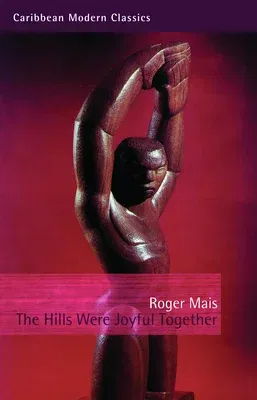Roger Mais
(Author)The Hills Were Joyful Together (Revised)Paperback - Revised, 19 September 2016

Qty
1
Turbo
Ships in 2 - 3 days
In Stock
Free Delivery
Cash on Delivery
15 Days
Free Returns
Secure Checkout

Part of Series
Caribbean Modern Classics
Print Length
320 pages
Language
English
Publisher
Peepal Tree Press
Date Published
19 Sep 2016
ISBN-10
1845231007
ISBN-13
9781845231002
Description
Product Details
Author:
Book Edition:
Revised
Book Format:
Paperback
Country of Origin:
US
Date Published:
19 September 2016
Dimensions:
20.32 x
13.46 x
2.79 cm
Genre:
Caribbean
ISBN-10:
1845231007
ISBN-13:
9781845231002
Language:
English
Pages:
320
Publisher:
Series:
Weight:
417.3 gm